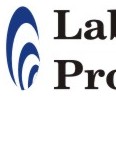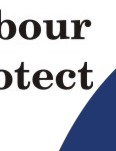 |
 |
 |
 |
 |
|
 |
 |
 |
 |
 |
|
 |
 |
 |
 |
 |
|
 |
 |
 |
 |
 |
|
 |
 |
 |
 |
 |
|
POLYGRAPH TESTING What is a Polygraph Test? It is a test used to verify a person’s truthfulness and is often called a “Lie Detector Test”. Is there any law controlling use of polygraph in South Africa? Polygraph Testing is a fairly new concept in South Africa, especially in disputes relating to employment relationships. There is no legislation at this point to control the use of the test or to protect the employee’s right against the abuse of the test. Can one be compelled to undergo a Polygraph Test? It is against the Constitution of South Africa to compel a person to undergo a Polygraph examination, unless she or he consents to it. The consent must be in writing. The individual should be informed that –
When is the employer permitted to use Polygraph? Generally, employers are permitted to use the polygraph to investigate specific incidents where –
Who gets the Polygraph results? Polygraph results cannot be released to any person but to an authorised person. Generally it is the person who has undergone the Polygraph Test (examinee), or anyone specifically designated in writing by the examinee, firm, corporation or government agency that requested the examination. What is the status of the Polygraph Test at the CCMA? Polygraphists have been accepted as expert witnesses whose evidence needs to be tested for reliability. The duty of the Commissioner is to determine the admissibility and reliability of the evidence. Polygraph Test may not be interpreted as implying guilt but may be regarded as a aggravating factor especially where there is other evidence of misconduct. In other words, Polygraph Test results, on their own, are not a basis for a finding or guilt. It can be used only in support of other evidence. This document is based on information available from the CCMA and on the CCMA site >> Labour Law >> useful links >> advice >> code of good practice: conduct and capacity >> harassment >> conciliation |
|
|National Assistance: 0860 LABOUR/ 0860 522687
|
||||
| To join... | ||||
| (the Membership Fee is only R85pm): | ||||
|
||||